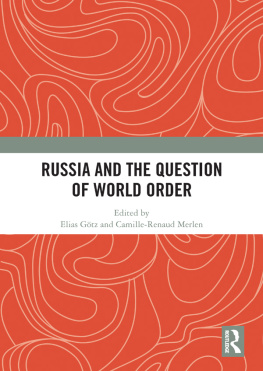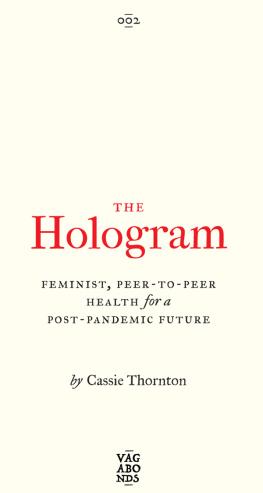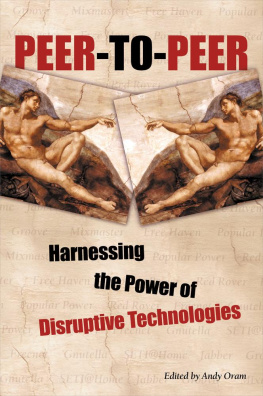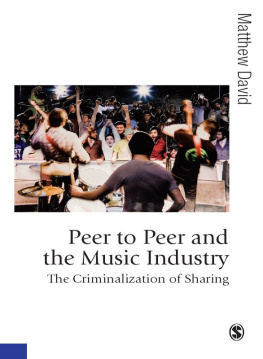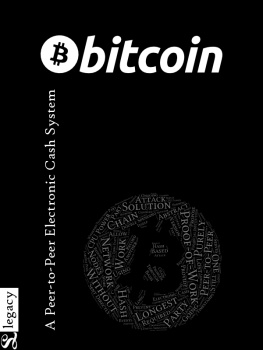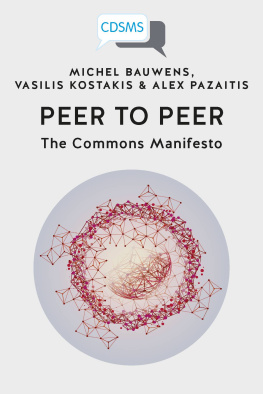Peer - A Question of Order
Here you can read online Peer - A Question of Order full text of the book (entire story) in english for free. Download pdf and epub, get meaning, cover and reviews about this ebook. year: 2017, publisher: Lightning Source Inc.;Columbia Global Reports, genre: Politics. Description of the work, (preface) as well as reviews are available. Best literature library LitArk.com created for fans of good reading and offers a wide selection of genres:
Romance novel
Science fiction
Adventure
Detective
Science
History
Home and family
Prose
Art
Politics
Computer
Non-fiction
Religion
Business
Children
Humor
Choose a favorite category and find really read worthwhile books. Enjoy immersion in the world of imagination, feel the emotions of the characters or learn something new for yourself, make an fascinating discovery.

A Question of Order: summary, description and annotation
We offer to read an annotation, description, summary or preface (depends on what the author of the book "A Question of Order" wrote himself). If you haven't found the necessary information about the book — write in the comments, we will try to find it.
Peer: author's other books
Who wrote A Question of Order? Find out the surname, the name of the author of the book and a list of all author's works by series.
A Question of Order — read online for free the complete book (whole text) full work
Below is the text of the book, divided by pages. System saving the place of the last page read, allows you to conveniently read the book "A Question of Order" online for free, without having to search again every time where you left off. Put a bookmark, and you can go to the page where you finished reading at any time.
Font size:
Interval:
Bookmark:
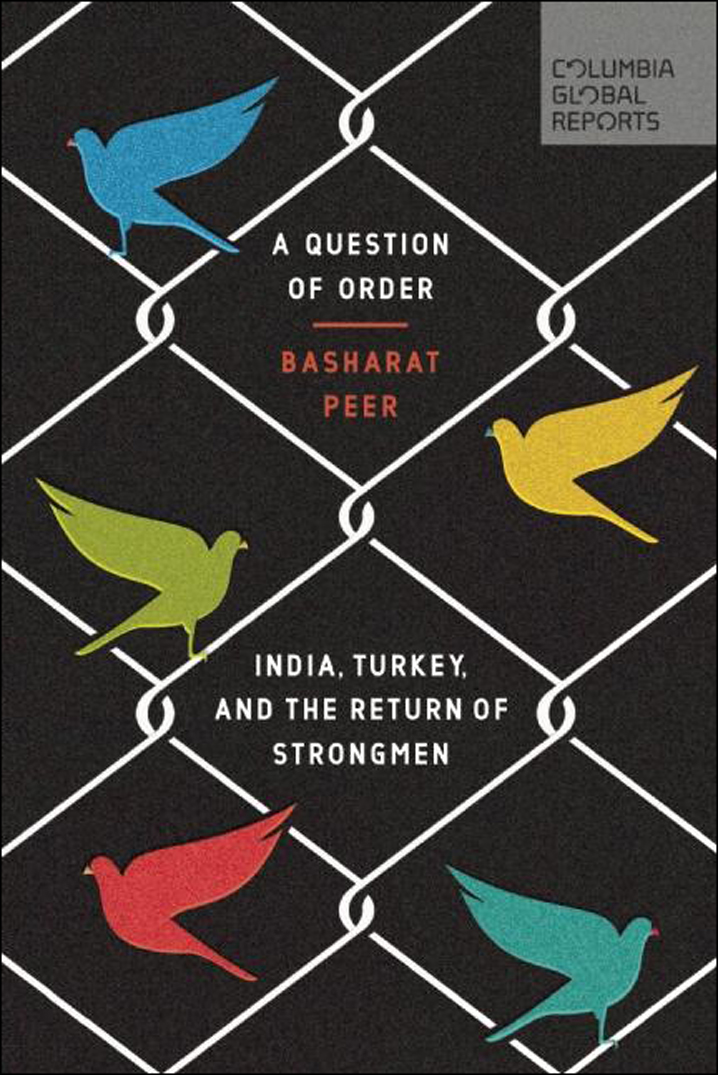




Copyright 2017 by Basharat Peer
All rights reserved
Published by Columbia Global Reports
91 Claremont Avenue, Suite 515
New York, NY 10027
globalreports.columbia.edu
facebook.com/columbiaglobalreports
@columbiaGR
Library of Congress Control Number: 2016945883
ISBN: 978-0997126433
Book design by Strick & Williams
Map design by Jeffrey L. Ward
Author photograph by Miranda Sita
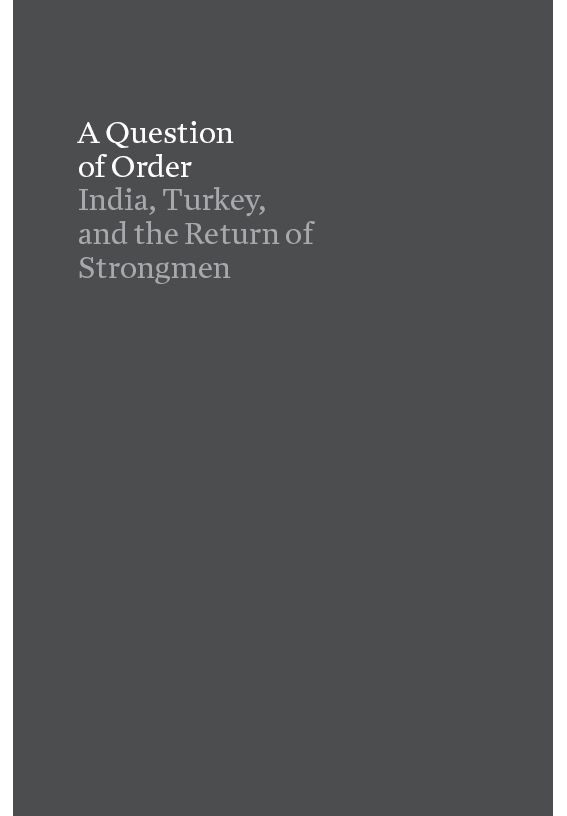
Table of Contents
CONTENTS
Everyones experience with democracy is different.
I grew up in the Indian-controlled part of the disputed region of Kashmir. Indias vaunted democracy seemed to stop short of the mountains circling my hometown as the government eroded the regions autonomous status, empowered mimic men, and ruthlessly crushed dissent. The infamously rigged 1987 elections and a legacy of arresting and torturing activists from the opposition led to rebellion in the winter of 198990. A brutal cycle of insurgency and counter-insurgency, which has claimed more than 70,000 lives since, turned Kashmir into the most militarized zone in the world. Indian soldiers were given immunity from prosecution even if they killed unarmed, innocent Kashmiri civilians. In a recent flareup in July 2016, Indian troops fired pellet guns at the eyes of Kashmiri protesters and blinded or partially blinded around 700 teenagers and young men. Not a single man who fired those guns will be prosecuted in a court of law.
The clich about India is that it is the worlds largest democracy. Numerical strength seems to magically imbue the country with liberal traditions and equality for its populace. By frequently repeating the description, secular and religious nationalists overlook gross inequalities between rich and poor, mistreatment of ethnic and religious minorities, segregation in cities, everyday violence against lower castes, brutal campaigns of pacification in Kashmir, and rebellions in northeastern states near the China, Bangladesh, and Myanmar borders.
The periphery might be ignored but it has a way of intruding upon the center. A nations illiberal practices on its borders do not remain isolated there. Using militant nationalism to beat up on peripheral populations often paves way for the rise of authoritarian figures in the center. The obliteration of Grozny contributed to the reign of Russian strongman Vladimir Putin. Putins return to the Kremlin as president in May 2012 and his subsequent decimation of oppositional forces is one of the more striking markers of the rise of illiberal regimes led by strongmen in the post-Cold War world.
After the collapse of the Soviet Union, the West expected an international order of liberal democracy and free markets to be the dominant paradigm for the world, but this did not materialize. There might be fewer traditional dictatorships across the globe in the twenty-first century, but the world is increasingly dominated by governments that are both democratic and authoritarian on the same afternoon. This is the age of hybrid regimes.
The political scientist Javier Corrales, while describing Hugo Chavezs Venezuela, has defined a hybrid regime as one in which the executive branch concentrates powers to the detriment of nonstate and opposition actors. At the heart of this crisis is the rise of illiberal democracy, in Fareed Zakarias famous phrase. Across the globe, democratically elected regimes, often ones that have been reelected or reaffirmed through referenda, are routinely ignoring constitutional limits on their power and denying their citizens of basic rights, Zakaria wrote in a classic 1997 essay in Foreign Affairs.
The importance of civil liberties and protections from the tyranny of the majority are the two great promises of liberal democracy. Those two values are in recession in the current political moment. And an increasing number of illiberal democracies are unabashedly being led by undemocratic, aggressive strongmen. Popular electoral support for leaders such as Russias Vladimir Putin, Turkeys Recep Tayyip Erdoan, Indias Narendra Modi, Egypts Abdel Fattah el-Sisi, Hungarys Victor Orbn, Chads Idriss Dby, Belaruss Alexander Lukashenko, Cambodias Hun Sen, and Singapores Lee Hsien Loong, just to name a few, has created a new class of elected autocrats who have pushed back liberal democratic practices. These strongmen have won electoral mandates from voters motivated by religious and ethnic nationalism, economic anxieties, and disillusionment with earlier weak, inefficient, or corrupt elites.
The modern strongmen share a certain set of qualities. They embrace militant nationalism, exude an aura of personal menace and strength, persecute political opponents, and seek to control media coverage. They have little patience for criticism and despise civil society. They have a certain love for efficiency and disregard for cumbersome democratic processes.
Strongmen are revisionists who share a preference for rewriting school textbooks, retelling tales of ancient glories, and reviving old wounds. They are united by their promises to make their countries great again. And they master the art of converting the fears and insecurities of citizens into electoral support. They position themselves as saviors on white horses, big-chested men who alone can rescue their nations from peril. Illiberal democracy is a growth industry, Zakaria wrote in 1997. His prophetic words have an even greater ring of truth at the moment.
In June 2016, the Philippines elected a brash populist named Rodrigo Duterte as its new president. Duterte, who is known as Duterte Harrya pun on Dirty Harryhas a history of association with vigilantes and brags about using brute force to control crime and drugs. Once a great heroine of the struggle for democracy, Nobel Laureate Aung San Su Kyi, whose party won the national elections in Myanmar, has turned into a sad apologist for majoritarian politics and genocidal violence against the Rohingya minority. Apart from its failure to prevent the murders of secular bloggers, the government in nearby Bangladesh has increasingly taken an authoritarian path and turned onto its political opponents. Paul Kagames post-genocide regime in Rwanda, which has been hailed for order and progress by the West, has ruthlessly destroyed freedom of expression and silenced critical voices. As the great philosopher and historian of ideas Isaiah Berlin said, Freedom for the wolves has often meant death to the sheep.
The illiberal tide and the rise of the strongmen exact a terrible human toll. At the end of these academic categories lie individuals and families whose lives are shaped, twisted, and often destroyed. I knew that well from my experience of reporting in India over the years. Through reading and through conversations with friends over time I found strong echoes of the Indian story in Turkey. These are two large democracies, which grew out of the collapse of empires, and which were led by charismatic founding fathers inclined toward varying degrees of European modernity. They are also multi-ethnic and multi-religious societies where religion and secularism are among the dominant faultlines. Both countries have been waging war against ethnic groups on their borders which sought independence or autonomy. India and Turkey are being ruled by strongmen who are business-friendly politicians, men from humble origins, who came of age in traditions of controversial religious politics. Narendra Damodardas Modi and Recep Tayyip Erdoan also share a love of public speaking, refer to themselves in the third person, and have used hologram technology to speak to multiple audiences across their countries.
Font size:
Interval:
Bookmark:
Similar books «A Question of Order»
Look at similar books to A Question of Order. We have selected literature similar in name and meaning in the hope of providing readers with more options to find new, interesting, not yet read works.
Discussion, reviews of the book A Question of Order and just readers' own opinions. Leave your comments, write what you think about the work, its meaning or the main characters. Specify what exactly you liked and what you didn't like, and why you think so.


